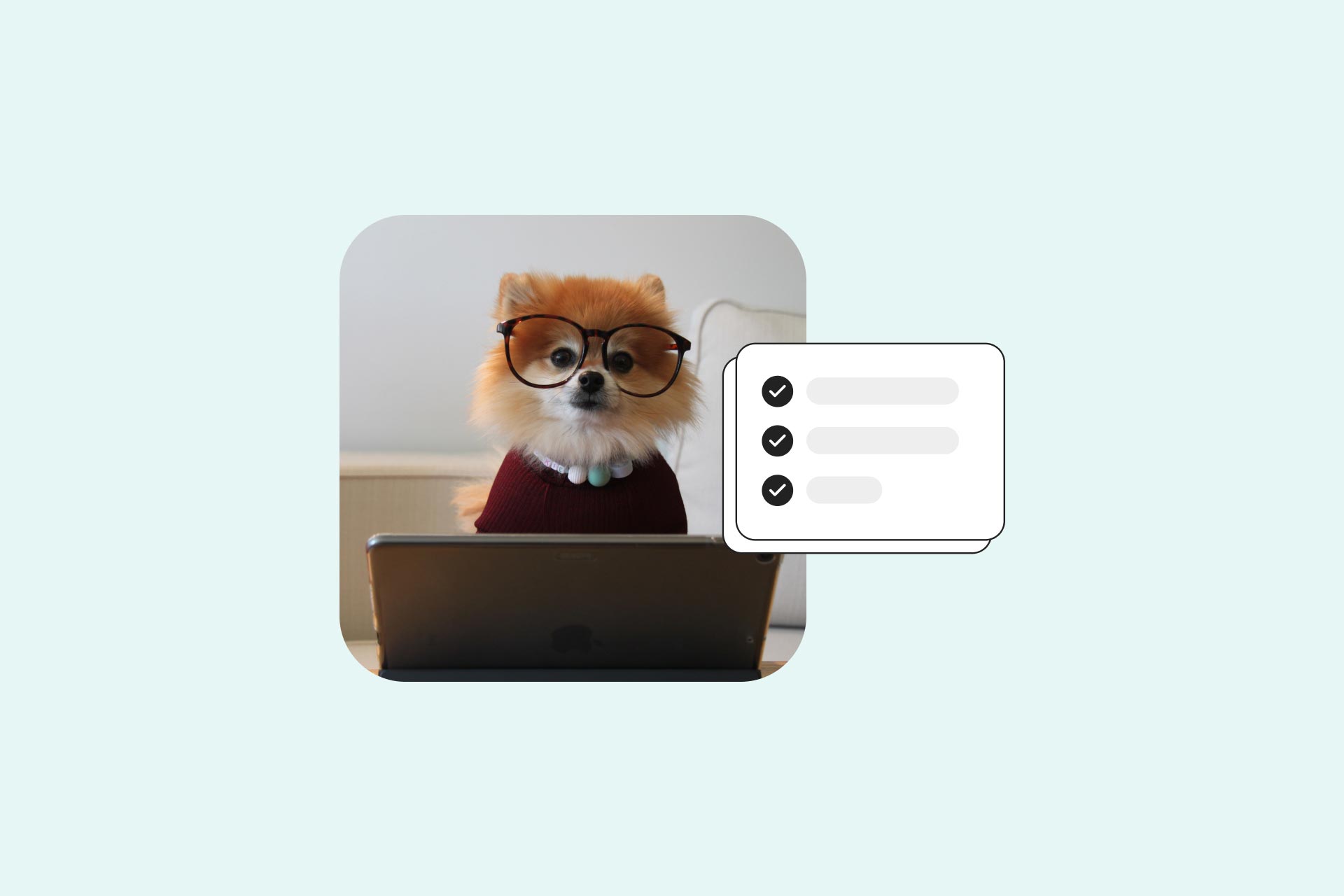What Does a Copywriter Do?
Read this short article to understand what a copywriter does and if it's the right digital marketing career path for you.

What Does a Copywriter Do?
What does a copywriter do and how do they do it? Until recently, the question could be sufficiently answered with a referral to Mad Men. Then the internet happened and things got weird.
The short answer is, copywriters write. Not (just) for the love of writing, but to sell a product or experience. How they do so, how they make money doing so, and how you can get in on the action takes many forms. Luckily, you have a copywriter of your own to guide you through them and maybe clear up some of the confusion surrounding this profession.
So, let’s walk through what a copywriter does.
Part I: Types of Contract
To summarize the main point of this article: copywriters are not all alike. The two major ways they differ are in the type of contract they’ve signed and the type of content they’ve signed on to write.
Starting with the types of contract, your options are: 1. Freelance; 2. In-house; and, 3. Agency. Let’s break these down further.
1. Freelance
The preferred option of digital nomads, freelancers are beholden to no one. They roam the earth looking for products in need of advertising, armed only with copywriting skills and a burning desire to further their digital marketing career. In theory at least.
In reality, a freelance contract can be for a set period of time or for a given project, it can involve any of the content we will be discussing later in this article, and it requires a passion for entrepreneurship that other contract types don’t.
Getting freelance opportunities can be difficult at first. It usually starts with creating a portfolio and cold-calling companies that might need help with their marketing. Once you’ve got that first job, you just pray they refer you to all their friends and that your business swells from there.
While the job security in freelancing leaves something to be desired, the money is there, and the freedom it promises makes it an attractive option for anyone who doesn’t feel like a 9 to 5 suits their personality (i.e. most people).
2. In-house
Probably the most stable contract option for copywriters, an in-house position makes you the go-to gal or guy for any writing a company needs. In other words, you’re hired by a specific company to write whatever that company needs written. Whether it’s a blog, an ad, a social post, or coming up with a name for a new product.
On the plus side, this means that as long as the company stays in business you’ll have a role and injecting stability into a digital marketing career is never a bad idea. The downside is never changing up what you’re writing about can become a slog if you don’t one hundred percent believe in the underlying mission of the product you’ve been hired to promote. Sometimes it’s nice to change things up when you’ve been staring at a writing project for too long. You’ll have fewer opportunities to do so on an in-house contract.
3. Agency
Enter Don Draper and the gang.
This contract type is probably what most people think about first when they wonder what a copywriter does, but it can take on many forms. There are big agencies, small agencies, agencies that have dozens of clients, agencies that have one client. In short, it’s a mixed bag.
Working at an agency can give you access to big budgets and clients that are looking for groundbreaking creative ideas to sell their projects. It can also burn you out since it has the worst work-life balance of all the options presented here. Creatively rewarding, potentially exhausting, that’s the agency life.
So, those are your contract opportunities, but what will you actually be doing? That depends on where you land in our next section.
Part II: Types of Content
Brands choose to promote their products with an array of different content types. In order of most to least actual writing involved, your options are: 1. Blog content; 2. Website copy; 3. Social copy; 4. Traditional advertising; 5. Conceptual.
Now here’s what that actually means.
1. Blog Content
This may come as a shock, but most of the things you read online are selling something. Blog writers create content that will attract readers to their client’s website in the hopes of convincing them to buy something while they’re there (on an unrelated note, click here to explore Acadium apprenticeships and start your digital marketing career today!) The trick of the job is to write an interesting blog piece while also performing SEO, or Search Engine Optimization, to make sure your article gets seen by Google’s Page Rank algorithm, while also providing a compelling case for the reader to investigate the company you’re writing for. The balancing act is what keeps this type of writing fun.
2. Website Copy
Similar to but different from blog content, writing web copy is firstly about making sure everything written on a company’s website is welcoming and clear and secondly about helping the web developer layout the site to maximize visual appeal. For writers that are more analytical or visually-inclined, web copy offers an interesting opportunity to be interdisciplinary in your writing.
3. Social Media Copy
Wendy’s savage Twitter account (this one, to be precise) doesn’t run itself. Companies will pay good money to someone who can navigate the ins and outs of social media to keep them at the top of trending lists worldwide. If you spend all day on social media anyway and study the movements of the Kardashians like they’re your spiritual guru, a digital marketing career focused on social media advertising is one way to monetize that obsession.
4. Traditional Advertising
For the wannabe filmmakers, poets or novelists out there, this next type of content will probably be the most appealing. Radio, TV, and print advertising don’t dominate marketing strategies the way they used to but they also haven’t gone away completely. Writing scripts, funny puns, and even slam poetry are still very marketable skills in traditional advertising. If you can put up with a client ruining nearly every idea you come up with, writing for this medium can be a rewarding experience both creatively and financially.
5. Conceptual
Finally, the most difficult content to pin down. Conceptual copywriting goes by many names: guerrilla marketing, ambient, experiential, stunt, and more. Whatever you call it, the goal is to take your client’s brand and help it jump out of traditional media and into potential customers’ lives, hopefully with an idea that will go viral in the process. This could mean everything from designing an app to writing a Broadway musical (seriously, Skittle’s did that, check it out). In a media landscape as complicated as ours, coming up with a great stunt for your client is sometimes the best way to get them noticed – which is ultimately your job as a copywriter!
Copywriting Opportunities Galore
Understanding types of contracts and content is just the start of your journey to appreciating what a copywriter does. The options become endless when you start to combine the two.
It’s possible to write social media copy as a freelancer. It’s possible to write traditional advertising in-house. It’s even possible to work freelance for an agency or write blog content as part of a conceptual campaign. While most agencies touch on all content areas, some focus on digital and social, some only do traditional broadcasting, and more and more are focusing on stunt ideas.
The key to all of this is finding your interests and matching them to your goals. What type of digital marketing career do you want, and what type of life do you want to lead alongside it? Whatever your answers to those questions are, copywriting can accommodate.
-
Career Prep
Top Marketing Webinars for Digital Marketers in 2025
By attending these webinars, you will have the opportunity to learn from industry leaders, gain insider knowledge, and stay ahead of the competition.
-
Career Prep, News
9 Types of Digital Marketing to Choose From in 2025
Digital marketing is a dynamic field that offers diverse career opportunities. From search engine optimization to social media marketing, there are many specializations to explore. Whether you're just starting out or looking to switch careers, this guide will help you find your ideal digital marketing niche.

Subscribe to our newsletter for digital marketing resources
Become a better marketer with our digital marketing resources and tips shared weekly in your inbox.

Get started with Acadium
Build your marketing career for free or find marketing talent on any budget — fully remote.

